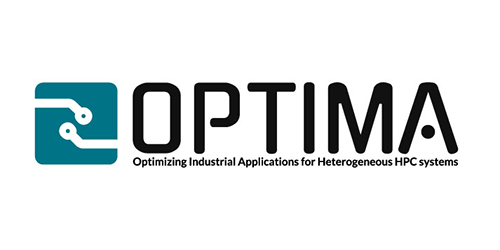In order to support the expanding demands for processing power from emerging HPC applications, within a pragmatic energy envelope, the future HPC systems will incorporate accelerators. One promising approach, to-wards this end, is the utilization of FPGAs; the main advantage of those devices is that, since they can be reconfigured at any time so as to implement tailor-made application accelerators, their energy efficiency and/or performance, in most of the cases, is much higher than that of CPUs and GPUs.
OPTIMA is an SME-driven project aiming to port and optimize a number of industrial applications as well as a set of open-source libraries, utilized in at least 3 different application domains, to two novel FPGA-populated HPC systems: a Maxeler MPC-X node located at the Jülich Supercomputer Centre and the ExaNest prototype located at the Institute of Computer Science – FORTH. Several innovative programming environments, toolchains and runtimes will be utilized including Maxeler’s MaxCompiler, Xilinx Runtime (XRT) and Fraunhofer’s GASPI/GPI-2. It is expected that the applications and the libraries will be executed, in those heterogeneous HPC systems at significantly higher energy-efficiency as described by the Energy Delay Product metric (EDP); in particular, the EDPof the OPTIMA applications and libraries when executed on the targeted FPGA-based HPC systems, is expected to be more than 10x higher than that triggered by CPU-based systems and more than 3x higher than the GPU-based ones.
The main outcomes of OPTIMA will be that:
• the participating SMEs will gain a significant advantage since they will be able to execute their applications much more efficiently than the competition,
• it will be further proved that Europe is at the forefront of developing efficient FPGA-populated HPC systems and application/libraries taking advantage of them,
• the open-source libraries as well as the open-source applications developed within OPTIMA will allow third parties to easily target FPGA-based HPC systems for their application developments,
• there will be an open-to-use HPC infrastructure supported by a specially formed sustainability body.



